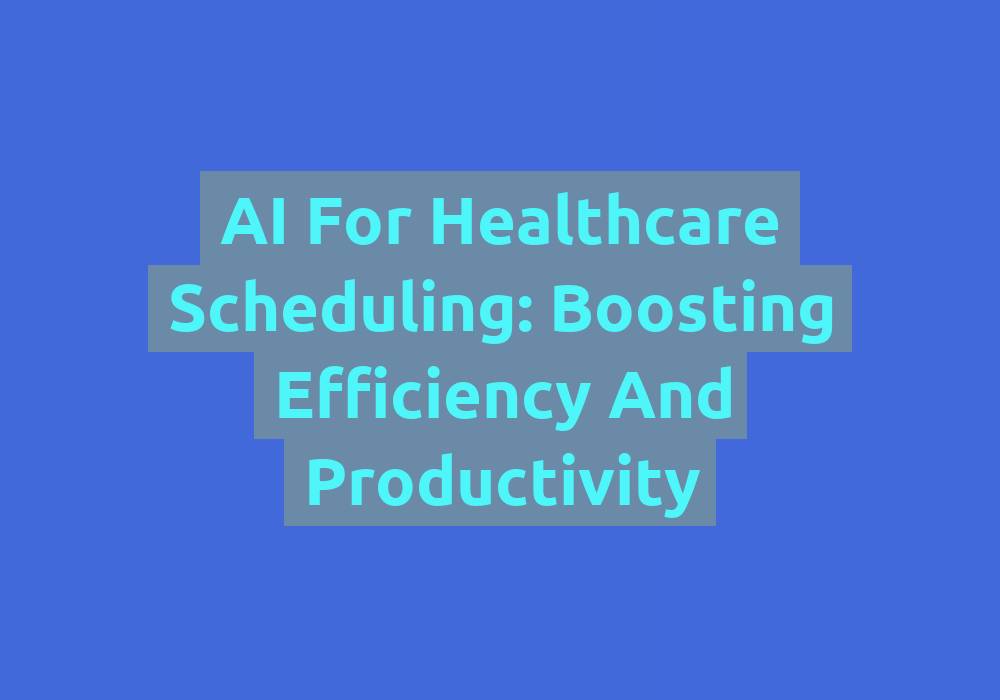Leveraging Tech in UK Healthcare Research Insights
Transformative Digital Health Innovations Shaping the UK Healthcare Landscape
The landscape of healthcare in the UK is experiencing a remarkable transformation, primarily driven by digital innovations. These advancements represent not just enhancements but significant shifts in the methods of healthcare delivery and management. A pivotal aspect of this evolution is the idea of leveraging tech for healthcare research, which encompasses a variety of technologies designed to improve patient outcomes and streamline healthcare processes. From telemedicine to mobile applications, each innovation plays a critical role in shaping a more effective and accessible healthcare system.
Significant Advancements in Telemedicine
The rise of telemedicine has gained remarkable momentum in the UK, particularly in the aftermath of the COVID-19 pandemic. Its rapid expansion has not only increased healthcare access but has also transformed the delivery of patient care. By facilitating remote consultations, telemedicine effectively bridges the gap between healthcare providers and patients who may face geographical or mobility challenges in attending in-person appointments. The NHS has taken the lead on numerous telemedicine initiatives, creating platforms that allow patients to consult with healthcare professionals from the comfort of their homes.
A notable example of this innovation is the NHS ‘Attend Anywhere’ service, which enables virtual consultations across various medical specialties. This service significantly alleviates the strain on physical healthcare facilities while enhancing patient satisfaction. The convenience of accessing healthcare services from home is particularly advantageous for elderly patients or those residing in rural areas. Additionally, telemedicine has proved to be revolutionary in mental health services, with platforms that provide online therapy sessions and support groups, making mental health care more accessible than ever.
The influence of telemedicine stretches far beyond patient consultations. Healthcare providers are increasingly utilising telemedicine data to refine treatment plans and identify prevalent health issues within specific demographics. This data-driven approach not only leads to improved health outcomes but also promotes a more efficient allocation of resources, truly embodying the essence of leveraging tech for healthcare research.
Revolutionising Health Management with Mobile Health Applications
The proliferation of mobile health applications is transforming the manner in which individuals manage their health in the UK. With the widespread use of smartphones, health apps have emerged as essential tools for monitoring and managing health conditions. These applications feature a broad spectrum of functionalities, from tracking physical activity to managing chronic illnesses such as diabetes and hypertension.
Applications like MyFitnessPal and Diabetes UK‘s ‘My Diabetes’ app exemplify how technology empowers patients to take charge of their health. These platforms enable users to log their dietary habits, exercise routines, and medication schedules, providing them with valuable insights into their health behaviours. The incorporation of health tracking features equips patients to make informed lifestyle choices, ultimately leading to improved health outcomes and quality of life.
Furthermore, many of these applications integrate telemedicine functionalities, allowing users to connect with healthcare professionals directly through the app. This seamless integration significantly enhances the overall patient experience. The NHS has also developed the NHS App, which grants citizens straightforward access to health information, appointment scheduling, and prescription services. As mobile health applications continue to advance, they will increasingly play a pivotal role in leveraging tech for healthcare research, facilitating data collection and analysis for public health initiatives.
Enhancing Data Management with Electronic Health Records
The adoption of Electronic Health Records (EHRs) in UK healthcare facilities represents a significant advancement in modernising health data management. EHRs serve as digital counterparts to patients’ paper charts, designed to streamline the flow of information within healthcare systems. The advantages of EHRs are extensive, ranging from improved coordination of patient care to enhanced accessibility of data for healthcare professionals.
In the UK, initiatives such as the NHS Digital Care Records Service are crucial in facilitating the widespread adoption of EHRs. This system enables the efficient sharing of patient information among healthcare providers, ensuring that essential health data is readily available during emergencies. The ability to access a patient’s comprehensive health history allows for prompt, informed decision-making, which is vital in critical care situations.
Moreover, EHRs significantly contribute to research initiatives by aggregating health data that can be analysed to identify trends and patterns in patient care. By leveraging tech for healthcare research, researchers can pinpoint areas for improvement within the healthcare system and formulate evidence-based policies. While the transition from paper to digital records presents challenges, including concerns over data security and privacy, the long-term benefits of EHRs in enhancing patient care and operational efficiency are substantial.
Wearable Health Technology: A Game Changer
The emergence of wearable health technology, including fitness trackers and smartwatches, has made significant inroads into the UK healthcare system. These devices not only encourage health and fitness among users but also generate valuable data that can be utilised for healthcare research. Devices like the Apple Watch and Fitbit feature capabilities that track heart rate, physical activity, and even sleep patterns, allowing users to proactively monitor their health.
The incorporation of wearable technology into healthcare settings exemplifies the concept of leveraging tech for healthcare research. By collecting data from these devices, healthcare providers can gain real-time insights into patient behaviours and health metrics. This information is particularly advantageous for managing chronic conditions, as it enables timely interventions when health metrics deviate from established norms.
Furthermore, research indicates that wearable devices can significantly enhance patient engagement and adherence to treatment plans. For instance, patients using wearables for chronic disease management often report improved health outcomes due to heightened awareness and motivation to maintain their health. As wearable technology continues to advance, its potential to enhance patient care and contribute to healthcare research is immense, paving the way for increasingly personalised medicine approaches in the UK.
Harnessing Big Data and AI for Transformational Changes in UK Healthcare
The convergence of big data and artificial intelligence (AI) within the UK healthcare system presents unprecedented opportunities for innovation and enhancement. The ability to analyse vast quantities of data empowers healthcare professionals to improve disease prediction, diagnostics, and treatment planning. Through the effective utilisation of these technologies, the UK is establishing a global benchmark for contemporary healthcare delivery.
Revolutionising Disease Prediction with Data Analytics
The application of big data analytics is fundamentally changing how the UK approaches disease prediction and management. By scrutinising extensive datasets, health authorities can discern patterns suggesting potential disease outbreaks before they escalate into larger crises. This proactive strategy has become increasingly essential in public health initiatives, particularly in light of recent pandemics and infectious disease challenges.
For example, Public Health England (PHE) and the NHS have deployed sophisticated data analytics systems to monitor health trends across the nation. This capability allows for timely interventions and resource allocation to areas experiencing surges in particular health issues, effectively preventing widespread outbreaks. The employment of data analytics underpins the UK’s commitment to evidence-based healthcare, ensuring that public health strategies are informed by empirical data rather than conjecture.
Additionally, big data analytics facilitate the early detection of chronic conditions such as diabetes and cardiovascular diseases. By recognising risk factors and demographic trends, healthcare providers can implement tailored prevention programmes. This approach not only enhances patient outcomes but also alleviates the overall burden on the NHS, exemplifying the effectiveness of leveraging tech for healthcare research.
Transforming Diagnostics with AI Technologies
AI technologies are increasingly being integrated into diagnostic procedures within UK hospitals, revolutionising how healthcare professionals identify and manage diseases. Machine learning algorithms possess the ability to analyse medical images, pathology slides, and patient data with remarkable accuracy, often surpassing human capabilities. This advancement significantly reduces diagnostic errors and accelerates the time taken to obtain results.
For instance, AI platforms such as DeepMind Health have made significant progress in analysing eye scans to detect conditions like diabetic retinopathy. Such technologies facilitate rapid diagnosis, enabling timely treatment and intervention. Moreover, AI-driven diagnostics extend beyond imaging; they also encompass predictive analytics, where algorithms assess patient data to anticipate potential health issues.
The integration of AI into diagnostics aligns with the UK’s broader strategy of enhancing patient care through technological advancements. By leveraging tech for healthcare research, hospitals can continuously refine their diagnostic capabilities, ensuring patients receive effective and prompt care. As these technologies evolve, they promise to further transform the landscape of healthcare diagnostics in the UK.
Machine Learning: Pioneering the Future of Personalised Medicine
Machine learning algorithms are paving the way for personalised medicine, tailoring treatments to individual patients based on their specific health data. This method takes into account genetic, environmental, and lifestyle factors, allowing healthcare providers to deliver more effective treatments and interventions.
In the UK, initiatives like the 100,000 Genomes Project are leading the charge in integrating machine learning into personalised healthcare. By analysing genomic data, researchers and clinicians can create targeted therapies for conditions such as cancer and rare diseases. This tailored approach not only improves treatment efficacy but also minimises adverse effects, aligning with the UK’s vision of delivering patient-centred care.
Moreover, machine learning applications can predict patient responses to specific treatments, enabling healthcare providers to make well-informed decisions regarding treatment plans. This data-driven methodology is a prime example of leveraging tech for healthcare research, enhancing the overall quality of care. As machine learning technologies continue to advance, they will be instrumental in shaping the future of personalised medicine within the UK.
Integrating AI with Electronic Health Records for Enhanced Data Management
The integration of AI with Electronic Health Records (EHRs) is set to revolutionise the management and analysis of patient data within UK healthcare settings. By automating data entry, analysis, and reporting, AI can streamline EHR processes, alleviating administrative burdens on healthcare professionals and enabling them to focus on patient care.
AI algorithms can sift through vast amounts of patient data to identify trends, predict outcomes, and suggest treatment options based on historical data. This level of analysis has the potential to greatly enhance patient care and operational efficiency within healthcare institutions. For example, AI can notify healthcare providers of potential drug interactions or flag abnormal laboratory results, ensuring that critical information is not overlooked.
Furthermore, the convergence of AI and EHRs bolsters healthcare research by facilitating the extraction of valuable insights from patient data. Researchers can analyse anonymised data to identify health patterns and formulate public health strategies. By leveraging tech for healthcare research, the UK enhances its capacity to deliver high-quality healthcare while simultaneously contributing to the global body of medical knowledge.
The Role of the UK Government in Integrating Technology into Healthcare
The UK government plays a vital role in the integration of technology into healthcare services. Through various initiatives, funding programmes, and regulatory frameworks, the government is cultivating an environment that encourages innovation and the adoption of health technologies.
Transforming the NHS through Digital Innovation
The NHS is undergoing a significant digital transformation aimed at embedding technology into healthcare services throughout the UK. The NHS Long Term Plan outlines ambitious strategies to enhance digital capabilities, including the implementation of interoperable EHRs and telehealth services. This transformation is intended to improve patient care, optimise operations, and ensure that healthcare services remain accessible to all citizens.
A notable illustration of this transformation is the NHS Digital programme, which focuses on creating a digital-first health service. This initiative encompasses the rollout of the NHS App, allowing patients to book appointments, order repeat prescriptions, and access health information online. Furthermore, the NHS is investing in telemedicine and remote monitoring technologies to broaden patient access to care, particularly in underserved areas of the country.
By prioritising digital transformation, the NHS positions itself to harness technological advancements for healthcare research. The data generated through these digital platforms will inform public health strategies and enhance clinical outcomes, ultimately improving the quality of care provided to patients across the UK.
Government Support and Funding for Health Technology Startups
Government funding and support programmes are crucial for the growth of health technology startups within the UK. Initiatives such as the NHS Innovation Accelerator and the DigitalHealth.London programme provide essential resources for entrepreneurs and innovators seeking to develop new health technologies. These programmes offer funding, mentorship, and networking opportunities to assist startups in navigating the complex healthcare landscape.
For instance, the NHS Innovation Accelerator has successfully supported numerous health tech companies that have developed solutions addressing critical healthcare challenges. By investing in innovative technologies, the UK government is fostering economic growth while simultaneously enhancing the healthcare system’s capacity to deliver high-quality care.
Moreover, public funding for health tech research encourages collaboration among academia, industry, and healthcare providers. By leveraging tech for healthcare research, these collaborations drive advancements in medical technology and improve patient outcomes across the UK.
Impact of Policy and Regulation on Health Technology Development
UK policies and regulations significantly shape the development and deployment of health technologies. The government establishes frameworks that ensure health technologies comply with safety and efficacy standards while promoting innovation. The Medicines and Healthcare products Regulatory Agency (MHRA) plays a crucial role in regulating medical devices and digital health technologies, ensuring they meet the requisite safety and quality standards.
The introduction of policies that support the integration of digital health technologies into the NHS reflects the government’s commitment to modernising healthcare. For instance, the Digital Economy Act includes provisions that facilitate data sharing among health organisations, encouraging the use of data analytics to enhance public health strategies.
However, striking a balance between regulation and innovation presents challenges. Policymakers must ensure regulations do not impede innovation while safeguarding patient safety. By leveraging tech for healthcare research, the UK can navigate this complex landscape, fostering an environment where health technologies can prosper while maintaining high standards of care.
Fostering Collaborative Research Efforts across the UK
Collaborative research efforts among universities, healthcare providers, and technology companies are crucial for advancing healthcare research in the UK. These partnerships foster innovation and enable the development of cutting-edge health technologies that address contemporary healthcare challenges.
Building Partnerships between Universities and Industry
Collaboration between UK universities and industry partners is essential for driving healthcare research and innovation. Institutions such as Imperial College London and University College London have formed partnerships with tech companies to develop groundbreaking health solutions. These collaborations leverage the expertise of academia in research alongside the practical application of technology in healthcare.
For example, the Imperial College London’s Institute of Global Health Innovation has partnered with various tech firms to create digital health solutions aimed at enhancing patient care and health outcomes. These partnerships have resulted in the development of AI-driven diagnostic tools and telemedicine platforms that are transforming healthcare delivery within the UK.
By leveraging tech for healthcare research, these collaborations bolster the UK’s position as a leader in health technology innovation. They also facilitate the transfer of knowledge between academia and industry, ensuring that research findings are effectively translated into practical applications that benefit patients.
Creating Interdisciplinary Research Teams for Comprehensive Solutions
The establishment of interdisciplinary research teams is a hallmark of successful healthcare research projects in the UK. By assembling experts from diverse fields, including medicine, engineering, data science, and psychology, these teams can address complex healthcare challenges from multiple perspectives. This collaborative approach fosters innovative solutions that may not emerge within a single discipline.
A notable example is the collaboration between researchers at the University of Oxford and tech companies to tackle mental health issues through digital interventions. By combining expertise in psychology, behavioural science, and technology, these interdisciplinary teams are developing effective mental health apps that assist users in managing their wellbeing.
Interdisciplinary research not only enhances the quality of healthcare solutions but also aligns with the principles of leveraging tech for healthcare research. By fostering collaboration among diverse expertise, the UK is well-positioned to generate impactful research that addresses pressing healthcare needs.
Advancing Public-Private Research Initiatives
Public-private research initiatives in the UK play a pivotal role in advancing health tech research. These collaborative efforts between government entities and private companies aim to develop innovative solutions that improve healthcare delivery and patient outcomes.
The Innovate UK programme embodies this collaborative spirit, providing funding and support for projects that drive innovation in health technology. By partnering with private firms, the government can access cutting-edge research and technological advancements that may not be feasible within the public sector alone.
For instance, initiatives like the UK Biobank project involve collaborations between public health organisations and private tech companies to create a comprehensive resource for health research. This partnership facilitates the collection and analysis of vast amounts of health data, empowering researchers to identify trends and develop effective health interventions.
By leveraging tech for healthcare research, these public-private initiatives not only enhance the UK’s research capabilities but also ensure that innovations translate into real-world applications that benefit patients and the healthcare system as a whole.
Showcasing Success: Case Studies of UK Health Tech Innovations
The UK is home to numerous successful health tech ventures that exemplify the transformative impact of technology on healthcare delivery. These case studies illustrate how innovative solutions are reshaping patient care and enhancing health outcomes across the country.
Wearable Technology: A Breakthrough in Chronic Disease Management
The integration of wearable technology into chronic disease management has yielded impressive results in the UK. Devices such as smartwatches and health monitors empower patients to track their vital signs and proactively manage their conditions. For instance, the NHS has adopted wearable technology as part of its strategy for chronic disease management, particularly for conditions like diabetes.
One success story is the partnership between the NHS and a health tech startup that developed a wearable device specifically for diabetes management. This device enables patients to continuously monitor their blood glucose levels and receive real-time feedback on their health status. By integrating this technology into the patient care model, healthcare providers can offer personalised support and interventions based on individual data.
The positive outcomes of utilising wearable technology for chronic disease management underscore the significance of leveraging tech for healthcare research. By collecting data from these devices, researchers can analyse trends and refine treatment protocols, ultimately enhancing patient outcomes and quality of life.
Enhancing Patient Care with Remote Monitoring Systems
Remote patient monitoring systems have gained prominence in the UK, particularly in response to the increasing demand for accessible healthcare solutions. These systems enable healthcare providers to monitor patients’ health conditions in real-time, minimising the need for in-person visits and improving access to care.
A notable example is the use of remote monitoring systems for patients with heart failure. The NHS has implemented programmes that utilise telemonitoring devices to track patients’ vital signs and alert healthcare providers to any concerning changes. This proactive strategy enables timely interventions and reduces hospital admissions, ultimately enhancing patient outcomes.
The success of remote monitoring systems highlights the effectiveness of leveraging tech for healthcare research. By collecting and analysing health data remotely, healthcare providers can identify patterns and trends, leading to improved care practices and optimal resource allocation.
Utilising Virtual Reality for Therapeutic Interventions
Virtual reality (VR) technology is emerging as a revolutionary tool in therapeutic settings within the UK. By providing immersive experiences, VR can assist in treating various conditions, including phobias, post-traumatic stress disorder, and chronic pain.
One successful case study involves the use of VR in treating patients with anxiety disorders. Therapists have employed VR simulations to expose patients to anxiety-inducing situations in a controlled environment, enabling them to practise coping strategies. This innovative approach has demonstrated promising results in reducing anxiety and enhancing patients’ quality of life.
The application of VR technology in therapy exemplifies the potential of leveraging tech for healthcare research. As researchers continue to explore the efficacy of VR in various therapeutic contexts, the findings could lead to the development of new treatment protocols and interventions that enhance mental health care within the UK.
Addressing Challenges and Developing Solutions in UK Health Technology
While the integration of technology into the UK healthcare system presents numerous advantages, it also introduces several challenges. Addressing these challenges is essential for ensuring the successful implementation and adoption of health technologies.
Data Privacy and Security: Safeguarding Sensitive Information
Data privacy and security are paramount concerns in the realm of health tech. As healthcare providers increasingly depend on digital systems to store and manage patient data, the risk of data breaches and cyberattacks escalates. Protecting sensitive patient information is critical for maintaining trust and ensuring compliance with regulations such as the General Data Protection Regulation (GDPR).
To mitigate these risks, healthcare organisations must implement robust cybersecurity measures and conduct regular audits to identify vulnerabilities. Additionally, staff training on data protection protocols plays a crucial role in preventing data breaches. The UK government has established guidelines to enhance data security within the healthcare sector, promoting best practices for data management.
By leveraging tech for healthcare research, organisations can explore innovative solutions for data security, such as blockchain technology, which offers secure and transparent methods for managing health data. Addressing data privacy concerns is essential for fostering confidence in health technologies and ensuring their successful integration into the healthcare system.
Integrating New Technologies with Existing Healthcare Systems
Integrating new technologies with existing healthcare systems remains a significant challenge in the UK. Legacy systems may not readily accommodate modern digital solutions, leading to inefficiencies and disruptions in care delivery. Ensuring seamless interoperability between new and existing technologies is crucial for maximising the benefits of health innovations.
To overcome this challenge, healthcare organisations can adopt open standards and APIs that facilitate data exchange between systems. Collaborating with technology providers to develop scalable solutions that integrate with current workflows is also essential. By prioritising interoperability, the UK can create a more cohesive healthcare ecosystem.
The successful integration of technology into healthcare requires a strategic approach that includes thorough testing and stakeholder engagement. By leveraging tech for healthcare research, organisations can identify best practices for technology integration, ultimately enhancing patient care and operational efficiency.
Ensuring Accessibility and Equity in Technology Adoption
Ensuring equitable access to health technologies across different regions of the UK is a pressing concern. Disparities in access to healthcare resources can result in unequal health outcomes, making it essential to address these issues as health tech becomes more prevalent.
To promote equity, healthcare organisations must consider the specific needs of diverse populations when implementing technology solutions. This includes providing training and support for patients who may be less familiar with digital tools. The NHS has launched initiatives aimed at increasing digital literacy among patients, ensuring that everyone can benefit from health technologies.
Additionally, targeted outreach programmes can help identify and support underserved communities, ensuring that health technologies are accessible to all. By leveraging tech for healthcare research, organisations can gather data on health disparities and develop targeted interventions to address these inequities.
Funding and Investment Challenges Facing Health Tech Initiatives
Securing funding and investment is a common challenge faced by health tech startups and initiatives in the UK. While government support programmes exist, competition for funding can be fierce, particularly in a rapidly evolving tech landscape.
To attract investment, startups must demonstrate the value and viability of their solutions. Developing robust business models and showcasing evidence of positive health outcomes can improve their appeal to potential investors. Collaborative partnerships with established healthcare organisations can also lend credibility and offer access to funding opportunities.
Moreover, public funding initiatives can play a critical role in supporting innovative health tech projects. By leveraging tech for healthcare research, organisations can identify funding opportunities and develop competitive grant proposals that enhance their chances of securing investment.
Navigating Regulatory Compliance while Fostering Innovation
Navigating regulatory compliance while fostering innovation poses a unique challenge for health tech organisations in the UK. Striking a balance between ensuring patient safety and encouraging the development of new technologies is essential for the successful integration of health tech into the NHS.
The MHRA and other regulatory bodies have established frameworks to guide the approval and deployment of health technologies. However, the regulatory landscape can be complex and time-consuming, potentially delaying the introduction of innovative solutions.
To address this challenge, health tech organisations should engage with regulators early in the development process, ensuring they understand compliance requirements and can incorporate them into their product design. By fostering collaboration between regulators and innovators, the UK can create an environment that supports both safety and innovation, ultimately benefiting patients.
Future Trends Shaping Healthcare Technology in the UK
As technology continues to evolve, the future of healthcare in the UK is poised for further transformation. Emerging technologies and trends are set to redefine the way healthcare is delivered, enhancing patient outcomes and operational efficiency.
Key Emerging Technologies to Monitor
Several emerging technologies are on the horizon, with the potential to revolutionise healthcare research in the UK. Artificial intelligence and machine learning will maintain a significant role in diagnostics, drug discovery, and personalised medicine. These advancements will empower healthcare providers to utilise vast amounts of data to enhance decision-making and improve patient care.
Additionally, developments in telehealth and remote monitoring technologies will further expand access to healthcare services, particularly for patients in isolated areas. The integration of virtual reality and augmented reality in medical training and patient therapy is also expected to grow, offering immersive experiences that enhance learning and treatment effectiveness.
Moreover, blockchain technology has the potential to reform health data management, providing secure and transparent systems for storing and sharing patient information. As these technologies advance, they will enable the UK healthcare system to become more efficient, equitable, and focused on patient-centred care.
Forecasting the Future of Healthcare Delivery
The future of healthcare delivery in the UK will likely be characterised by a more patient-centric approach, driven by technology. As health technologies become increasingly integrated into everyday care, patients will gain greater control over their health management. This shift will empower healthcare providers to deliver tailored interventions based on individual health data, resulting in improved health outcomes.
Furthermore, the emphasis on preventive care will intensify, with health technologies facilitating early detection and intervention strategies. By leveraging tech for healthcare research, the UK will be at the forefront of developing proactive healthcare models that prioritise prevention over treatment.
As the healthcare landscape evolves, collaboration among stakeholders, including government, healthcare providers, and technology companies, will be crucial in realising these predictions. By embracing innovation and nurturing a culture of collaboration, the UK can continue to lead the way in healthcare delivery excellence.
Frequently Asked Questions About UK Healthcare Innovations
What role does telemedicine play in the UK healthcare system?
Telemedicine enhances patient access to healthcare by facilitating remote consultations, thereby reducing the need for in-person visits and improving care delivery, especially in rural areas.
How do mobile health applications empower patients in the UK?
Mobile health applications enable patients to actively monitor their health, track conditions, access health resources, and connect with healthcare providers remotely, fostering greater engagement in their care.
What exactly are Electronic Health Records (EHRs)?
EHRs are digital versions of patients’ medical histories, designed to facilitate efficient data sharing among healthcare providers, thereby improving care coordination and patient outcomes.
What impact does big data have on healthcare in the UK?
Big data analytics provide predictive insights that inform public health strategies, improve disease management, and enhance patient care by identifying significant health trends.
In what ways is AI transforming diagnostics in the UK?
AI technologies analyse medical data and images, improving diagnostic accuracy and speed while reducing errors in clinical decision-making processes.
What challenges arise when integrating new technologies into healthcare?
Challenges include ensuring interoperability with existing systems, addressing data privacy concerns, and securing funding and investment for innovative health projects.
How can the UK ensure equitable access to health technologies?
Promoting digital literacy, implementing targeted outreach programmes for underserved communities, and addressing the specific needs of diverse populations are vital for achieving equitable access.
What role does the government play in funding health tech innovations in the UK?
The UK government provides essential funding, support programmes, and regulatory frameworks to foster innovation and assist health tech startups in navigating the complexities of the healthcare landscape.
What future trends are anticipated in UK healthcare technology?
Emerging technologies such as AI, telehealth, and blockchain are poised to transform healthcare delivery, emphasising patient-centred approaches and preventive care strategies.
How can health technology contribute to research efforts?
Health technologies facilitate data collection and analysis that informs public health strategies, enhances clinical outcomes, and supports evidence-based healthcare decision-making.
The post Leveraging Tech in UK Healthcare Research Insights appeared first on Healthcare Marketing Service.







